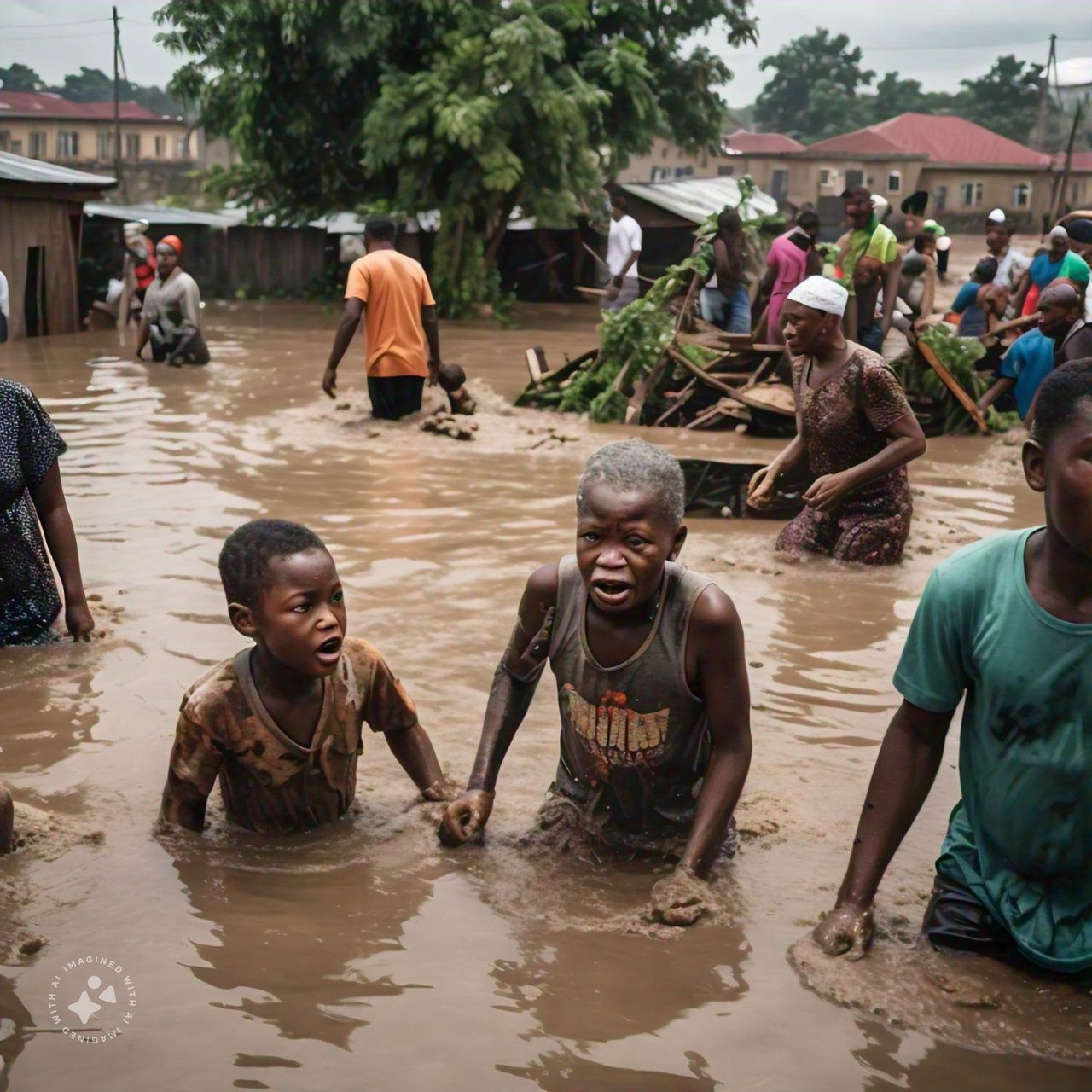Flooding in Nigeria is a recurring disaster, particularly during the rainy season, which generally spans from May to September. Despite decades of experience with flood-related devastation, the Nigerian government has been criticized for its inadequate response to both short-term crises and long-term solutions. This issue highlights the failure to learn from past events, implement effective prevention strategies, and manage the impacts of climate change.
Several factors contribute to the persistent flooding problem:
1. Poor Urban Planning and Infrastructure
Many Nigerian cities, including Lagos and Abuja, suffer from poor drainage systems, unregulated urban expansion, and improper waste disposal, which block water channels. Despite repeated incidents of flooding, the government has not prioritized upgrading infrastructure to accommodate rising water levels.
2. Deforestation and Environmental Degradation
Nigeria has lost a significant portion of its forest cover, leading to reduced soil absorption capacity, increased surface runoff, and subsequent floods. Inadequate reforestation efforts have exacerbated the situation.
3. Lack of Dams and Water Management Systems
Nigeria's river basins, particularly along the Niger and Benue rivers, have been prone to flooding. The government has not invested adequately in building dams, reservoirs, or water diversion systems to manage excessive water flow during the rainy season. This has been a critical failure, as many devastating floods could be mitigated with better water management systems.
4. Climate Change
Climate change is intensifying rainfall patterns, but the Nigerian government's efforts to adapt to these shifts have been insufficient. Rising sea levels, unpredictable rainfall, and extreme weather events are not adequately addressed in national disaster management plans.
5. Delayed Response and Poor Disaster Management
In instances of flooding, the government's emergency response is often slow, and recovery efforts are poorly coordinated. Flood-prone regions have been left without early warning systems, sufficient evacuation plans, or relief materials. In many cases, the failure to mobilize resources quickly has resulted in avoidable loss of life and displacement of thousands.
6. Lessons Not Learned
Floods have devastated communities in Nigeria for decades, but successive administrations have failed to draw from these experiences. The 2012 flood, one of the worst in recent history, should have prompted better preparedness, but the lack of political will and effective policy implementation persists.
To address the issue, the Nigerian government must prioritize:
- Investment in infrastructure (e.g., better drainage systems and water management).
Urban planning reforms that prevent construction on floodplains.
- Public awareness and early warning systems to improve disaster readiness.
- Long-term environmental policies to curb deforestation and adapt to climate change.
Without serious and sustained effort, the pattern of disaster and rebuilding will continue, and the social, economic, and environmental costs will grow.
Eguaogie Eghosa
